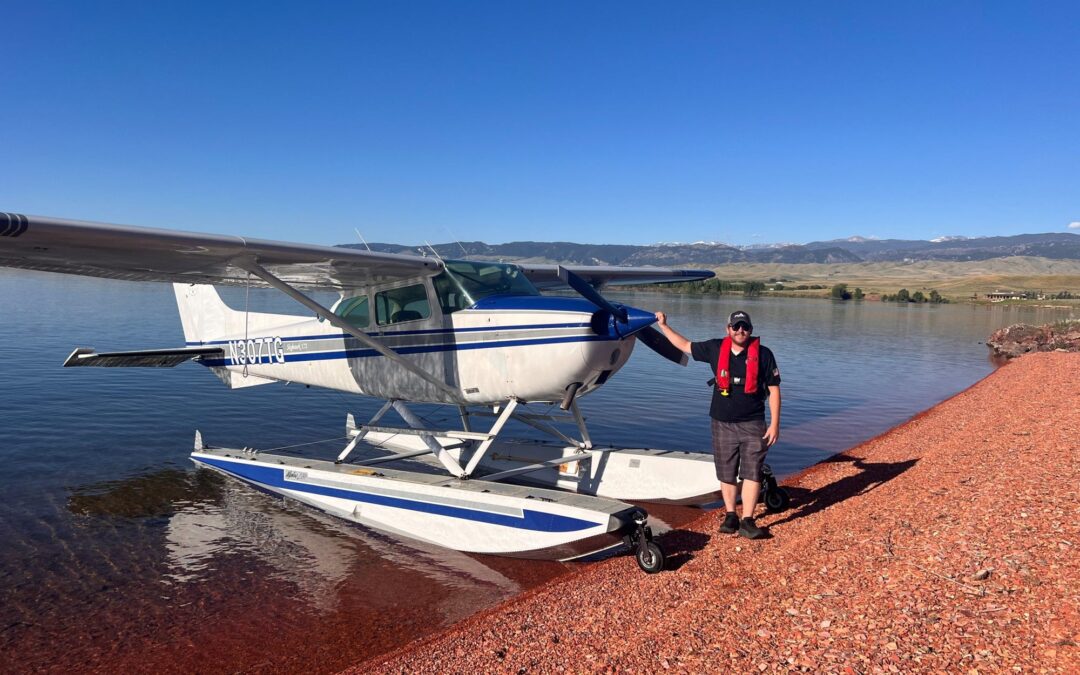The student pilot had his own airplane and was shopping around for a CFI. He had no previous experience—he didn’t even know how to taxi—but he had very firm ideas on how the training for his private pilot certificate should go.
“I’m not paying for ground instruction,” he told me.
This was not about doing hours of private pilot ground school. This was about any ground, including that which is done to satisfy FAR 91.103, which reads: “Each pilot in command shall, before beginning a flight, become familiar with all available information concerning that flight.” This means learning how to access and interpret weather, calculate aircraft performance, use a checklist, and the lesson pre- and post-briefings.
He just wanted to fly, he said.
I told him I am from the “teach it on the ground, practice it in the air” school of instruction, so I was not the right instructor for him. I figured he would find another pilot to take him up for rides.
If the learner would rather do ground school on their own using one of the many fine online courses available such as King Schools, Sportys, etc., I am fine with that, as long as they invest the time to learn the material. Most of the online courses allow CFIs to be notified when their learners have taken a quiz or test. This makes it easy for us to see your soft spots, and the best CFIs can tailor a flight lesson to help you learn better.
Ground school is much more than preparing for the knowledge test. Ground school—any ground training—gives the learner the information they need to make good aviation decisions. Topics typically covered include how to fly in certain types of weather, determining aircraft performance so you don’t run out of runway and options at the same time, or knowing what creates lift or a rough running engine so that you can troubleshoot it.
If your instructor is reluctant to do a preflight briefing or tells you it is “too early” for ground school, find someone else to fly with, as they are short-changing you on your education. It may be that the CFI never had someone model the importance of ground school for them, or they trained at an accelerated program where the ideology was to pass the knowledge tests and frankly the checkride by memorization.
When a learner says they don’t want to do ground training—as in not even learning to use a checklist—it raises a red flag. This was one of the things flight school employees and CFIs were told to watch for after the 9/11 attacks.
CFIs were instructed to be wary of persons who wanted to take shortcuts by going straight to flying a multiengine airplane or inquiring if the flight school had a jet to train in. We were told to pay attention to intro flight clients who made inquiries about the closest tall buildings, military establishments, or made jokes about security and hijackings or simply put us on edge.
Most of the time though, the impatient learners—especially those that don’t want to do ground instruction—don’t see the value in the training. This may come from a CFI they have worked with in the past. If the CFI doesn’t value ground instruction, the learner won’t either.
My first experience with this type of impatient flight student was a pre-solo learner who had been flying at another school. A review of his logbook revealed he had logged 10 hours in the past two months. There were takeoffs and landings, towered airport operations, and straight and level flight. No ground instruction was recorded. This is not surprising. At some flight schools, CFIs are only paid when the engine is running. As they do not get paid for providing ground instruction, many are reluctant to do much, if any.
Despite his hours, the learner had no idea how to obtain a weather briefing, calculate aircraft performance, or use the checklist to do the preflight inspection. I saw this as an opportunity to educate him. And I did, for a whopping 24 minutes total. I demonstrated a few things, talking him through others. “You use these skills on every flight,” I explained.
As we were Part 61 school the learner resented the idea of using a syllabus and the checklist, saying it was “too military” He was a “both hands on the yoke guy” for takeoff and needed coaching on rudder use. He refused to make radio calls and had to be reminded to make clearing turns.
The flight, all 1.3 hours of it, was climbs, descents, turns to a heading, and slow flight. Slow flight was new to him and made him nervous. He said he preferred straight and level, which gave him more of a chance to look around. We did a lot of that. We ended with a lap in the pattern. There was coaching on the landing.
After the flight there was the obligatory debrief, and I filled out and signed his logbook. When he was presented with the bill for 1.3 flight and 0.5 ground, he became upset, saying he refused to pay for the ground portion because, according to him, all I did was talk.
Before I could reply, my next learner, a CFI candidate who was sitting on the couch waiting for me, burst out with, “That’s called teaching!”
Lucky for me the office manager overheard the exchange and said she would take care of things, and I should get on with my next client.
It wasn’t until the end of the day that I caught up with the office manager, who rather smugly told me the previous learner’s bill had been adjusted. When the learner insisted he was only paying for flying around straight and level, she changed the flight rate from instructional to scenic, which was considerably more per hour. Basically, the bill was doubled.
“We will never see him again,” I said, stunned.
“That’s the idea,” she replied.
The post Don’t Skimp on Ground Instruction in Flight Training appeared first on FLYING Magazine.




